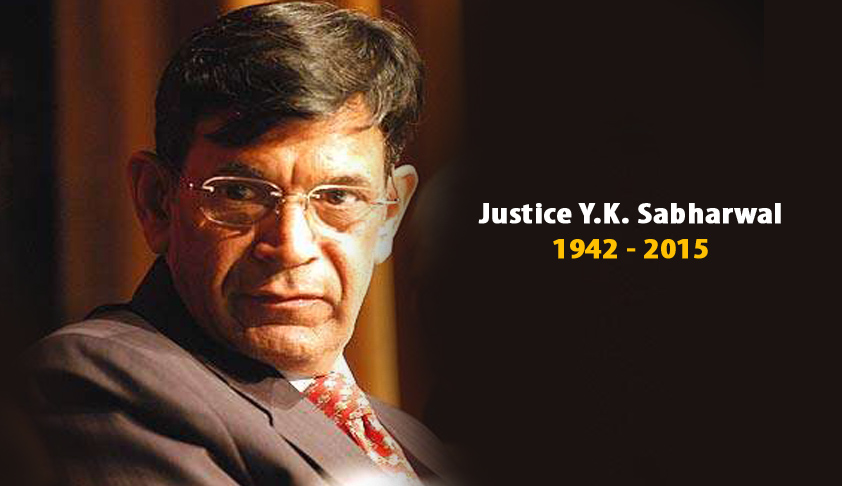- Home
- /
- Cover Story
- /
- Former CJI Yogesh Kumar Sabharwal...
Former CJI Yogesh Kumar Sabharwal passes away
Apoorva Mandhani
3 July 2015 10:41 PM IST
Former Chief Justice of India Yogesh Kumar Sabharwal passed away today, at the age of 73.Justice Sabharwal enrolled as an advocate at Delhi in 1964. He mainly practiced on the Civil & Constitutional sides In the Delhi High Court. He worked as an Advocate for Indian Railways from 1969 to 1981, as an advocate for Delhi administration from 1973 to 1976-1977, later as Additional...
Next Story



